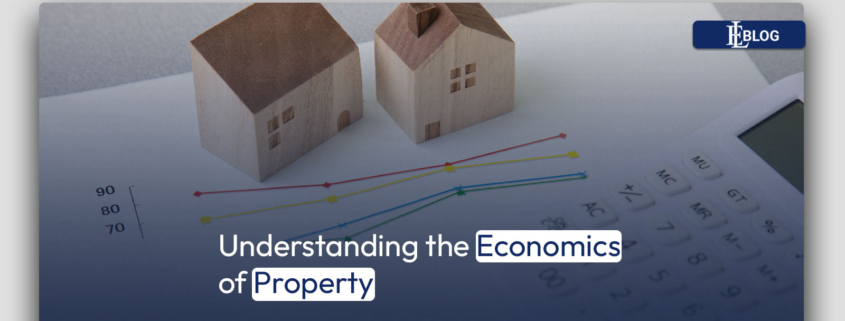Understanding the Economics of Property
The economics of property is a vast and complex concept that will help individuals, including both investors and developers. Moreover, the vision evolves around the market forces that calculate the property values to the government policies. The individuals associated with real estate should know these concepts for better and optimal real estate deals. Further, the study of market dynamics that impact real estate’s purchasing, selling, and leasing is known as property economics.
The supply and demand of real estate, interest rates, governmental regulations, economic expansion, and consumer preferences are just a few of the many variables that go into the complicated topic of property economics.
Economics of property
Several concepts come under this term. However, we will discuss a few of them to understand the overall dealing of real estate economics and finance. So, here are the main terms and factors to go through to understand property economics.
Supply & Demand
The function of demand and supply in setting real estate prices is essential in the study of property economics. Property prices typically rise when demand for property is high, and supply is low. On the other hand, property values tend to drop when there is a low demand for homes and an increased supply.
Location
The worth of real estate is mainly high because of its location, which is one of the basic concepts of property economics. Property values tend to be higher in desirable places with convenient access to amenities, jobs, and transportation than in less desired areas. Further, the real estate market’s quality, age, and situation are other elements that might influence a property’s worth. Especially for commercial real estate economics, location plays a significant role in increasing and decreasing its worth.
Property Rights
The ability to use, acquire, and exclude others from utilizing one’s property is understandable by property rights. And which are a fundamental component of property economics. These rights offer the social and legal framework necessary for effective resource allocation—the internalization of externalities and market operation.
Individuals are encouraged to engage in their resources, increase the value of those resources, and form agreements with one another when property rights are well-defined and enforceable. Property ownership is crucial to the effective allocation of resources and the smooth operation of the real estate market.
Market Efficiency
Market accuracy and resource allocation are two concepts in property economics known as market efficiency. Moreover, the effective distribution of Resources and properties price represent their genuine underlying value thanks to efficient markets. Due to incomplete information and outside influences, achieving market efficiency can become complex—however, improvements regarding openness, information-sharing, and valuation methods.
Maximizing trade profits and avoiding speculative bubbles and collapses, which can cause instability in the real estate market and the broader economy, are two advantages of market efficiency.
Government Policies & Property Taxes
Governmental laws and regulations can significantly impact the economics of property. For instance, promoting the construction of low-cost housing can boost the number of homes, which can lower home prices. Also, tax laws can influence the need for houses and the value of real estate investments, impacting real estate economics.
Interest Rates
Interest rates influence real estate economics. Moreover, low interest rates make it more feasible for people to obtain mortgages to purchase real estate. So, there may be additional demand for homes, raising home prices. In contrast, high interest rates make it more expensive to obtain a mortgage, which can reduce demand for homes and bring down property values.
Property Development
Property development, which refers to purchasing, enhancing, and reselling real estate assets, is a crucial component of property economics. Moreover, land ownership, planning, zoning, building, financing, and marketing are just a few of the several tasks involved in property development. Due to the new supply, it generates and the physical infrastructure it offers, property development is essential to the real estate market.
The provision of new dwellings and business space, as well as the production of jobs and tax money, are all examples of the significant economic and social effects that property development may have. Several variables, such as market conditions, financing options, and legal frameworks, influence property development’s success.
Conclusion
Property economics is the first aspect that all realtors and investors look to before entering the business. Anyone interested in purchasing, selling, or putting money into real estate should generally understand the economics of property. Further, realtors and investors can make better choices regarding their property investments by understanding the numerous elements that affect property pricing and demand. In addition, you can get detailed guidance on the topic and investment-related issues from the Estate Land Marketing team. So, contact us to gain in-depth guidance.



